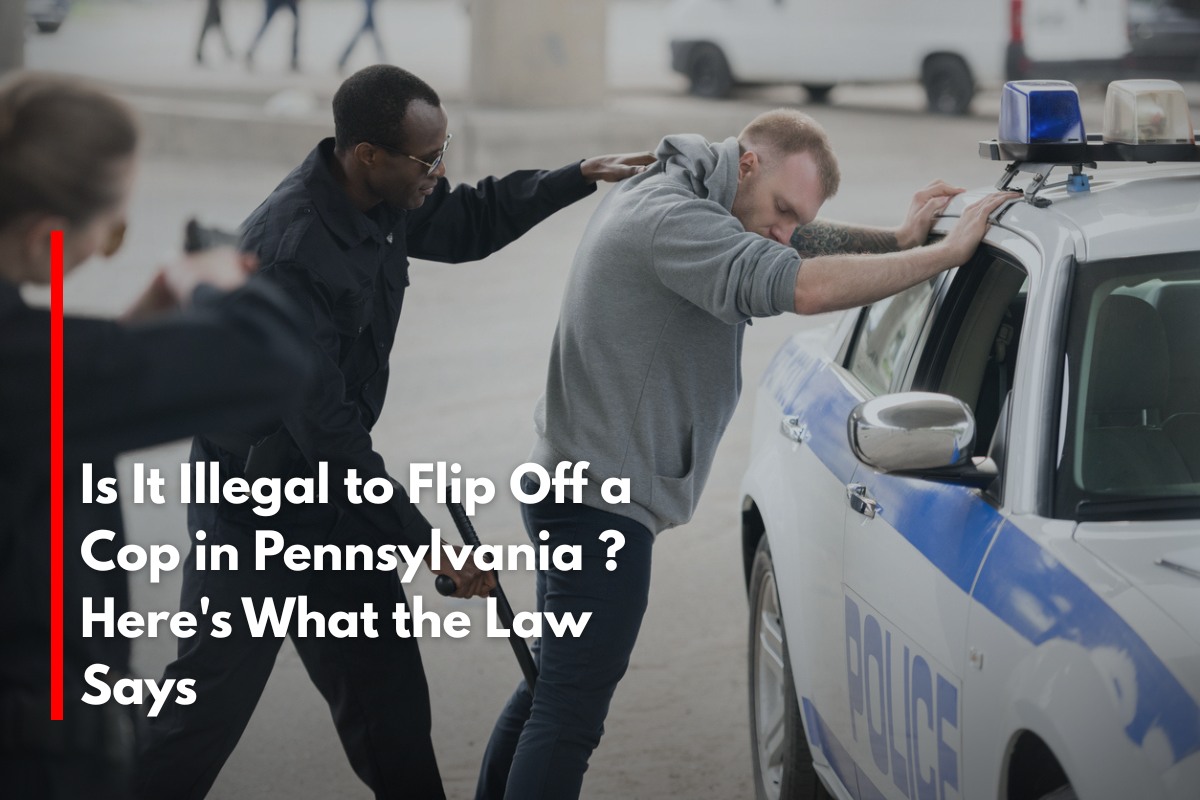Flipping the middle finger, often called “flipping off,” is a common non-verbal gesture used to express anger or disdain. When directed at a police officer in Pennsylvania, many wonder if this act crosses the line into illegality. This article explores the legal implications of flipping off a cop in Pennsylvania, relevant court rulings, and how the law balances free speech and public order.
The Gesture and the First Amendment
The First Amendment to the U.S. Constitution protects freedom of speech, including expressive conduct like gestures. Courts have consistently held that offensive or rude gestures, including flipping off another person, are generally protected forms of speech.
This protection extends to interactions with police officers. Pennsylvania courts and federal courts agree that the act of giving a police officer the middle finger alone does not constitute a criminal offense and is part of constitutional free speech rights.
Court Cases Upholding Free Speech
Several court cases have reinforced that flipping off a police officer is not illegal by itself. For example, in a 2013 federal appeals court case, a New York resident was found to be within his rights when he gave an officer the middle finger during a traffic stop.
The court ruled that this act did not justify arrest for disorderly conduct, emphasizing that such gestures are protected speech unless accompanied by threatening behavior or violence. Similarly, Pennsylvania cases have struck down convictions based solely on obscene gestures toward police, underscoring the strong protections of expressive conduct.
When Can Flipping Off a Cop Lead to Trouble?
While flipping off an officer is protected speech, context matters significantly. If the gesture escalates into obstructive, threatening, or violent conduct, police may have grounds for arrest based on disorderly conduct or related charges. Pennsylvania’s disorderly conduct law prohibits “obscene language” or “obscene gestures” in public that cause a disruption or alarm.
However, courts generally interpret “obscene” narrowly, often excluding rude but non-threatening gestures like flipping off. The risk is higher if the gesture incites a confrontation or is paired with aggressive behavior.
The Concept of “Contempt of Cop”
“Contempt of cop” is an informal phrase describing the police reaction to perceived disrespect, such as flipping off an officer. While not a lawful charge by itself, some officers may arrest individuals for conduct they claim crosses the line, usually citing disorderly conduct or similar statutes.
Legal experts warn that such arrests may violate constitutional rights if based solely on protected speech, which can lead to civil rights lawsuits against police departments, as seen in past ACLU cases in Pennsylvania.
Practical Advice: Rights and Risks
Legally, Pennsylvanians have the right to flip off police officers, but practical caution is advised. Police officers may respond negatively or escalate enforcement based on perceived disrespect.
To avoid unnecessary complications, it’s wise to consider alternative ways of expressing disagreement or frustration during encounters with law enforcement. Remaining calm, respectful, and cooperative can prevent escalating tensions and potential charges.
flipping off a cop in Pennsylvania is not illegal per se and is protected as free speech under the First Amendment. However, this protection does not give immunity from arrest if accompanied by other unlawful conduct. Understanding the legal landscape and acting prudently can help maintain one’s rights without provoking avoidable legal trouble.
Sources
(https://www.shubinlaw.com/flipping-off-police-officers-constitutional-federal-court-affirms/)
(http://campbelllawobserver.com/let-the-bird-fly-giving-a-cop-the-finger-is-not-grounds-for-arrest/)
(https://www.performance-protocol.com/post/is-it-illegal-to-flip-off-a-cop-examining-the-legal-and-social-implications)
(https://reason.com/volokh/2023/01/13/pennsylvania-court-on-obscene-language-and-criminalizing-fighting-words/)
(https://inns.innsofcourt.org/media/42698/disorderlyconductsummary.pdf)











